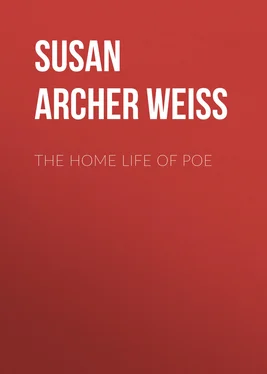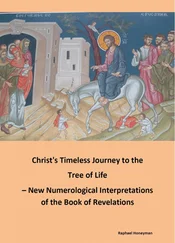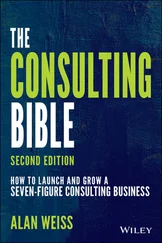Susan Archer Talley Weiss - The Home Life of Poe
Здесь есть возможность читать онлайн «Susan Archer Talley Weiss - The Home Life of Poe» — ознакомительный отрывок электронной книги совершенно бесплатно, а после прочтения отрывка купить полную версию. В некоторых случаях можно слушать аудио, скачать через торрент в формате fb2 и присутствует краткое содержание. Жанр: Биографии и Мемуары, foreign_antique, на английском языке. Описание произведения, (предисловие) а так же отзывы посетителей доступны на портале библиотеки ЛибКат.
- Название:The Home Life of Poe
- Автор:
- Жанр:
- Год:неизвестен
- ISBN:нет данных
- Рейтинг книги:4 / 5. Голосов: 1
-
Избранное:Добавить в избранное
- Отзывы:
-
Ваша оценка:
- 80
- 1
- 2
- 3
- 4
- 5
The Home Life of Poe: краткое содержание, описание и аннотация
Предлагаем к чтению аннотацию, описание, краткое содержание или предисловие (зависит от того, что написал сам автор книги «The Home Life of Poe»). Если вы не нашли необходимую информацию о книге — напишите в комментариях, мы постараемся отыскать её.
The Home Life of Poe — читать онлайн ознакомительный отрывок
Ниже представлен текст книги, разбитый по страницам. Система сохранения места последней прочитанной страницы, позволяет с удобством читать онлайн бесплатно книгу «The Home Life of Poe», без необходимости каждый раз заново искать на чём Вы остановились. Поставьте закладку, и сможете в любой момент перейти на страницу, на которой закончили чтение.
Интервал:
Закладка:
Edgar, he said, was allowed a liberal weekly supply of pocket money, but being of a generous disposition and giving treats of taffy and hot gingerbread to his schoolmates at recess, besides being generally extravagant, this supply was always exhausted before the week was out, when he would borrow, and so be kept constantly in debt. He was, however, very prompt in paying off his debts.
Mr. Robert Sully, nephew of the distinguished artist, Thomas Sully, and himself an artist, was through life one of Poe's firmest friends. A boy of delicate physique and a disposition so sensitive and irritable that few could keep on good terms with him, he was always in difficulties. "I was a dull boy at school," he said to me; "and Edgar, when he knew that I had an unusually hard lesson, would help me out with it. He would never allow the big boys to teaze me, and was kind to me in every way. I used to admire and in a way envy him, he was so bright, clever and handsome.
"He lived not far from me, just around the corner; and one Saturday he came running up to our house, calling out, "Come along, Rob! We are going to the Hermitage woods for chinquepins, and you must come too. Uncle Billy is going for a load of pine-needles, and we can ride in his wagon." Now, that showed his consideration; he knowing that I could not walk the long distances that most boys could, and therefore seldom went on one of their excursions."
In one of Poe's biographies is an absurd story to the effect that Mr. Clarke, his first teacher, once on detecting him robbing a neighbor's turnip-patch, tied one of the vegetables about his neck as a token of disgrace, which the boy purposely wore home, when Mr. Allan, in a fury at this insult to his adopted son, called on the teacher and threatened him with personal chastisement. It is scarcely necessary at this day to deny the truth of that story; but the following is what Mr. Clarke himself says about it in an interview with a reporter in Baltimore some years after Poe's death, he being at that time nearly eighty years old. 4 4 This account, clipped from a Baltimore paper, was given by Professor Clarke's son to a Richmond reporter in 1894.
"Edgar had a very sweet disposition. He was always cheerful, brimful of mirth and a very great favorite with his schoolmates. I never had occasion to speak a harsh word to him, much less to make him do penance. He had a great ambition to excel."
He spoke with pride of Edgar as a student, especially in the classics. He and Nat Howard on one vacation each wrote him a complimentary letter in Latin, both equally excellent in point of scholarship; but Edgar's was in verse, which Nat could not write.
"Whenever Poe came to Baltimore he would not forget to come and see me, and I would offer him wine. It was the custom, you know. When he became editor of Graham's Magazine and could afford it, he sent wine to me, gratis.... I think that as boy and man Edgar loved me dearly. I am sure I loved him.... Yes; he was a dear, open-hearted, cheerful and good boy; and as a man he was a loving and affectionate friend to me. I went to his funeral."
The old Professor said that Poe's sister, Rosalie, he had seen when her brother was a pupil of his. "She was at that time about ten years old, was pretty and a very sweet child."
Poe, after leaving Professor Clarke's, entered Dr. Burke's classical school in 1832, where he remained until he went to the University. Here one of his classmates was Dr. Creed Thomas, a noted Richmond physician, who died so late as in 1890. In his reminiscences of Poe, published in a Richmond paper not long before his own death, he says:
"Poe was one of our brightest pupils. He read and scanned the Latin poets with ease when scarcely thirteen years of age. He was an apt student and always recited well, with a great ambition to excel in everything.
"Despite his retiring disposition he was never lacking in courage. There was not a pluckier boy in school. He never provoked a quarrel, but would always stand up for his rights.... It was a noticeable fact that he never asked any of his schoolmates to go home with him after school. The boys would frequently on Fridays take dinner or spend the night with each other at their homes, but Poe was never known to enter in this social intercourse. After he left the school ground we saw no more of him until next day."
Dr. Thomas spoke of Poe's fondness for the stage. He and several other of the brightest boys held amateur theatricals in an old building rented for the purpose. Poe was one of the best actors; but Mr. Allan, upon learning of it, forbade his having anything to do with these theatricals, a great grievance to the boy.
"A singular fact," proceeds Dr. Thomas, "is that Poe never got a whipping while at Burke's. I remember that the boys used to come in for a flogging quite frequently—I got my share. Poe was quiet and dignified during school hours, attending strictly to his studies; and we all used to wonder at his escaping the rod so successfully."
He adds that Poe was not popular with most of his schoolmates; that his manners were retiring and distant. Doubtless there were boys with whom he did not care to associate, feeling the lack of a congeniality between himself and them. Then there were the prim and priggish class who looked with virtuous disapproval on the robber of apple orchards and turnip-patches, and who in after years never had a good word to say of Poe, whether as boy or man.
It will be observed from Dr. Davis' account that the "quiet and dignified" manner which distinguished Poe in manhood was natural to him even as a boy.
As regards his never inviting his schoolmates to accompany him home to dinner or to spend the night, this would not have been agreeable to Edgar, who would have preferred having his time to himself for reading or writing his verses, a volume of which he now began to make up. But he was by no means deprived of company at home. The Allans, as has been said, were fond of entertaining their friends, and at their "sociables" and "tea parties" Edgar was generally required to be present, with one or two young friends to keep him company, and often he was treated to a "party" of his own—boys and girls—where a rigid etiquette was required, though dancing and charades were indulged in. This was Mrs. Allan's idea of affording him enjoyment and cultivating in him elegant and graceful manners; but to him it was most distasteful. Throughout his life he detested social companies. Mrs. Mackenzie, in speaking of the social restraint under which the Allans at this time sought to keep Edgar, said that it was very distasteful to the boy, who liked to choose his companions, and who now, at the age of fifteen, began to be dissatisfied and to think that he was subject to undue restraint at home. She often heard him express the wish that he had been adopted by Mr. Mackenzie instead of by Mr. Allan; and she would talk to him in her motherly way, endeavoring to impress him with a sense of what he owed to the latter. His disposition, she said, was very sweet and affectionate, and he was grateful for any kindness, and always happy to be at her house as much as he was allowed to be from home. Her son John could never be persuaded to visit Edgar at his home, so strict was the etiquette observed at table and in general behavior. She believed that Mr. Allan, in taking charge of Edgar, had been influenced more by a desire to please his wife than any real interest in the child, though he had conscientiously endeavored to do his duty by him. She had once heard him say that Edgar did not know the meaning of the word gratitude ; to which she replied that it could not be expected of children, who were not able to understand their obligations; and that she did not at present look for gratitude from Rose, but for affection and obedience. Mrs. Allan was devoted to Edgar and he was very fond of her. It was she, Mrs. Mackenzie thought, rather than her husband, who so extravagantly supplied him with money, seeming to take a pride in his having more than his schoolmates. She was a good and amiable woman, fond of pleasure generally, and less domestic in her tastes than either her husband or sister.
Читать дальшеИнтервал:
Закладка:
Похожие книги на «The Home Life of Poe»
Представляем Вашему вниманию похожие книги на «The Home Life of Poe» списком для выбора. Мы отобрали схожую по названию и смыслу литературу в надежде предоставить читателям больше вариантов отыскать новые, интересные, ещё непрочитанные произведения.
Обсуждение, отзывы о книге «The Home Life of Poe» и просто собственные мнения читателей. Оставьте ваши комментарии, напишите, что Вы думаете о произведении, его смысле или главных героях. Укажите что конкретно понравилось, а что нет, и почему Вы так считаете.












